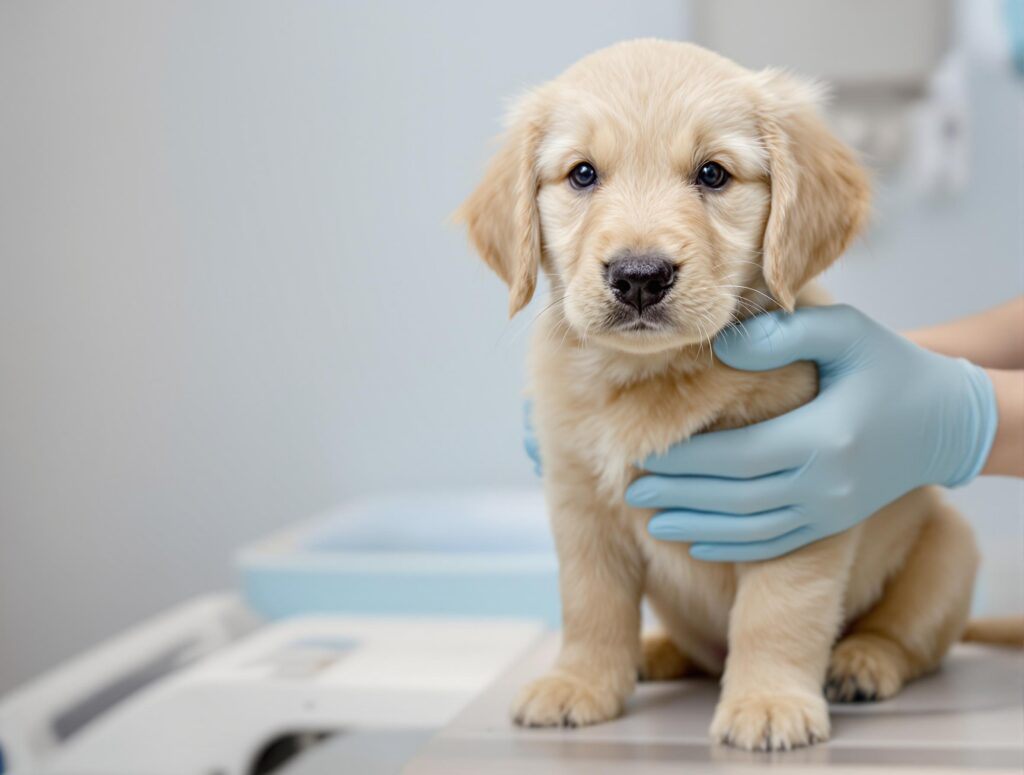Key takeaways:
- Puppies grow at different rates based on breed, with steady weight gain being key to healthy development.
- A balanced diet, portion control, and regular feeding schedules support proper growth.
- Monitoring weight, appetite, and energy levels helps detect any health concerns early.
Puppies grow at an incredible pace in their first few weeks, quickly transforming from tiny newborns into playful, energetic companions. While every breed develops at its own rate, monitoring weight gain helps ensure your puppy is on a healthy track. Growth patterns can vary significantly, and supporting your puppy with the right nutrition and care is essential. Explore helpful puppy products and nutrition essentials in the Dog Category.
Understanding what is normal for your puppy’s size and breed helps you provide the best care during this critical stage. Factors like genetics, diet, and overall health all influence their development. At PetHealthMD, we are here to guide you through your puppy’s growth journey, offering expert-backed insights and practical tips to support their healthy milestones.
Ideal Weekly Puppy Weight Gain
A puppy’s weight gain is one of the best indicators of healthy development. Since growth rates vary by breed size, it is important to compare your puppy’s progress with their expected range rather than a one-size-fits-all approach.
Here is a breakdown of typical weekly weight gain based on breed size:
- Tiny breeds under 10 lbs as adults: 1 to 5 ounces per week
- Small breeds 10 to 25 lbs as adults: 5 to 10 ounces per week
- Medium breeds 25 to 50 lbs as adults: 1 to 2 pounds per week
- Large breeds 50 to 100 lbs as adults: 2 to 3 pounds per week
- Giant breeds over 100 lbs as adults: 3 to 5 pounds per week
Puppies do not always gain weight at a perfectly steady rate. Some may have quick bursts of growth followed by slower periods. As long as they continue progressing toward a healthy adult weight, minor fluctuations are normal. If you are unsure whether your puppy is growing at a safe pace, your vet can assess their body condition and recommend any dietary adjustments.
Factors Affecting Puppy Weight Gain
Many factors work together to influence how your puppy grows. Understanding these helps you support their healthy development.
Internal Factors
- Growth Rate by Size: Small breeds may gain as little as 0.5 ounces weekly, while large breeds can add up to 2.5 pounds during growth spurts.
- Family History: A puppy’s parents provide helpful insight into expected adult size and growth patterns.
- Body Type: Some breeds reach adult size by six months, while others may take up to two years.
External Factors
- Daily Activity: Age-appropriate play and exercise support muscle development.
- Weather Changes: Puppies often need more calories during colder months.
- Home Environment: A calm, consistent environment supports healthy eating habits.
- Meal Schedule: Regular feeding times encourage steady digestion and growth.
For help choosing nutritious meals and growth-supporting supplements, explore the Dog Health Category for trusted products.
Tips for Healthy Puppy Nutrition
Growing puppies have higher nutritional needs than adult dogs. They require about twice as many calories per pound of body weight during their first year to fuel rapid development.
Here are helpful nutrition tips:
- Choose puppy-specific formulas tailored to growth stages.
- Select foods with high-quality proteins and healthy fats to support muscle and brain development.
- Establish a consistent feeding schedule. Begin with four meals daily, then gradually reduce to two meals by their first birthday.
- Use a measuring cup or scale to serve accurate portions.
- Provide fresh, clean water at all times.
- Transition foods gently over 7 to 10 days to avoid digestive upset.
You can also browse growth-supporting supplements and digestive aids in the Dog Supplements Category to help maintain healthy development.
FAQs About Puppy Weight Gain
When should I contact my vet about my puppy’s weight gain?
If your puppy’s weight changes drastically in a short time or they seem less energetic, uninterested in food, or unusually thirsty, contact your vet. Sudden shifts in weight can point to digestive issues, parasites, or other health concerns.
What are the best ways to adjust my puppy’s diet for healthy weight gain?
If your puppy is underweight, gradually increase portion sizes by about 10 percent. Choose high-quality puppy food with at least 25 to 30 percent protein, and feed three or four smaller meals daily. If growth does not improve after two weeks, schedule a veterinary checkup.
What physical signs show my puppy is growing healthily?
A healthy puppy typically has bright eyes, a shiny coat, playful energy, and pink gums. You should feel—but not visibly see—their ribs. A stable appetite and normal bathroom habits also indicate healthy development.
How much exercise supports healthy puppy growth?
Use the five-minute rule: five minutes of structured activity per month of age, twice a day. For example, a four-month-old puppy needs about 20 minutes per session. Playtime, short walks, and light training are ideal.
Support Your Puppy’s Healthy Growth
Watching your puppy grow is one of the most rewarding parts of pet parenthood. Each milestone reflects the care and attention you provide. Staying mindful of their nutrition, exercise, and overall well-being lays the foundation for a strong, active life.
At PetHealthMD, we are committed to guiding you through every stage of your puppy’s development. From weight tracking to nutrition planning, our expert resources ensure you have the support needed to help your puppy grow strong.




